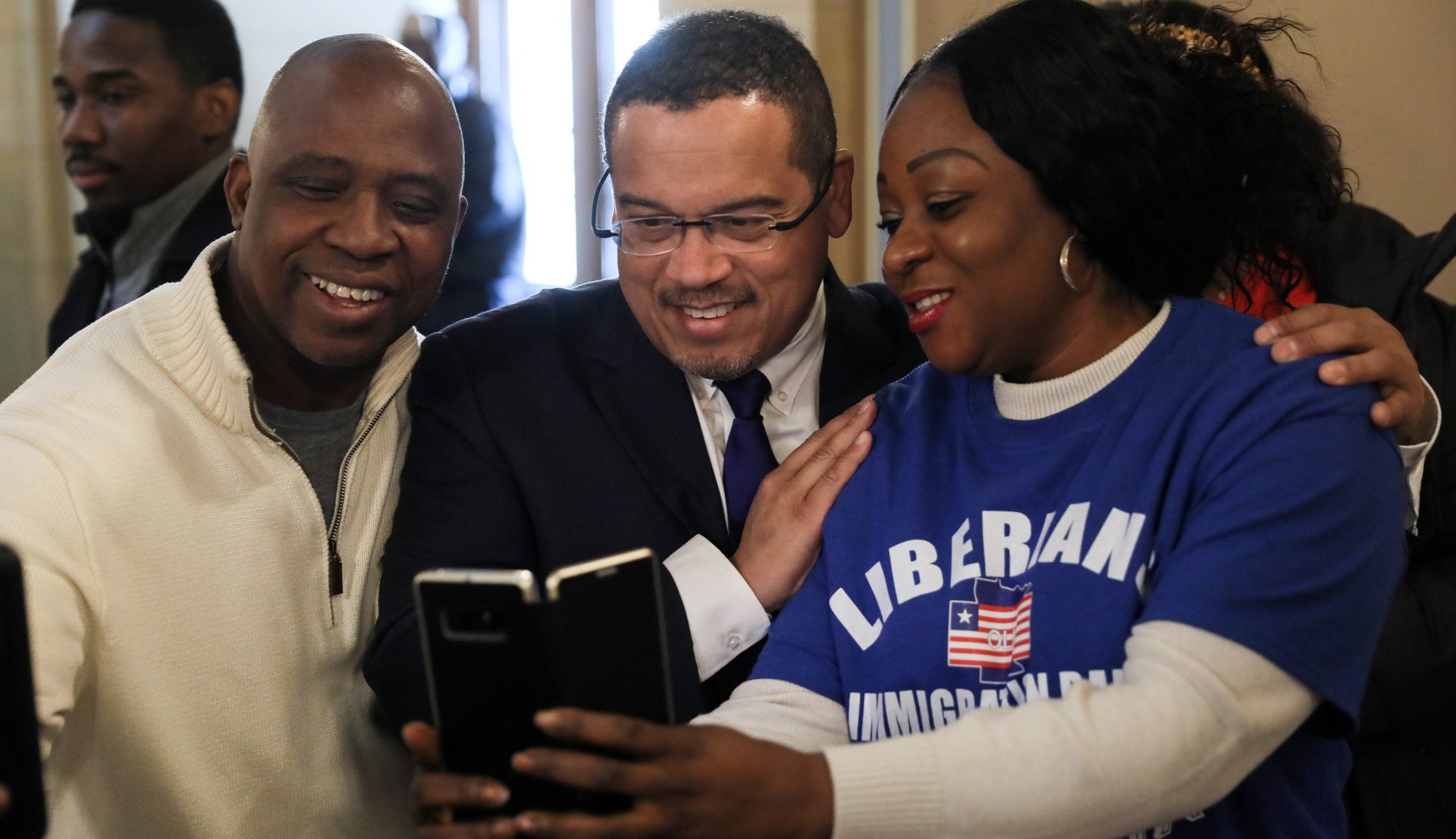A surprise provision in a Trump defense bill has granted a path to citizenship for 4,000 Liberians
In an unprecedented move, the Trump administration granted a path to citizenship for about 4,000 Liberians living legally in the United States on humanitarian programs.


In an unprecedented move, the Trump administration granted a path to citizenship for about 4,000 Liberians living legally in the United States on humanitarian programs.
The provision was buried in the $738 billion defense appropriation bill for fiscal year 2020 under “Other Matters.” The bill, which was signed into law on Dec. 20, will allow these Liberians to apply for green cards under Section 7611 of the National Defense Authorization Act titled “Liberian refugee immigration fairness”.
For over two decades, thousands of Liberian immigrants have lived with uncertainty in the US after fleeing civil war in the 1990s and early 2000s. Under both Republican and Democrat administrations, they received temporary respite in the form of humanitarian programs—the Deferred Enforced Departure and Temporary Protected Status programs—issued at the president’s discretion. Over the years they have been shuffled between both programs.
The biggest scare came in March 2018 when president Donald Trump announced the termination of the DED program and gave the more than 4,000 Liberian DED holders a year— until Mar. 31, 2019—to leave the US or risk deportation. The announcement sparked a lawsuit from advocacy groups, African Communities Together and Undocublack, and fifteen Liberian DED holders, which cited racial animus as the president’s motive for terminating the program. But just days before the deadline, the administration quietly issued an executive order extending the program until Mar. 30, 2020. And now, with the green-card provision, Liberians can apply for permanent residency before the expiration of their current statuses.
Once dubbed “America’s stepchild,” Liberia has had a nearly 200-year bilateral relationship with the US. The West African country was founded by freed African-American slaves who helped create the modern Liberian state in 1847. Tensions between indigenous peoples and the settlers’ descendants, who held a near monopoly on political control of the state until 1980, contributed to the early days of violence in the country.
Advocacy groups hailed the “legislative prowess” of Senator Jack Reed, a Democrat from Rhode Island and Senator Tina Smith, a Democrat from Minnesota. Reed has been a fierce advocate of the Liberian community; the provision in the NDAA bill is modeled after his long-championed Liberian Refugee and Immigrant Fairness Act. Rhode Island has one of the largest populations of Liberians in the US per capita, and since 1999 Reed has worked to allow Liberians to legally remain in the United States.
The provision finally “gives [Liberians] a chance to stop living from year to year, extension to extension, to finally be able to put down roots and have some security and legal equality,” said Amaha Kassa, executive director of African Communities Together.
“This breakthrough is a testament to the power of organizing, and what a focused movement can do. Most importantly, this resolution is a nearly three decades-long journey for Liberians,” said Patrice Lawrence, the National Policy and Advocacy Director for the UndocuBlack Network. “It is the proof and promise of the resilience of Black immigrants.”
Despite the good news advocates are pressing on with their lawsuit against the Trump administration. In October 2019, a federal judge in Massachusetts ruled that the Court lacked the authority to compel the President to act to extend DED for those currently in that status. The plaintiffs filed an appeal in December. For the groups involved, the focus is now on exposing the president’s motives for terminating the program in the first place.
“We will not forget the unnecessary cruelty and threat of instability inflicted by this Administration in the first place,” said Lawrence.
With the provision, the new concerns for groups like Undocublack is how speedily applications will be processed and when people will get their work permits while they wait.
“The [law] doesn’t require that [the Liberians] keep their work permits beyond March,” said Lawrence. “The difference with a gap of a week or two can mean loss of livelihoods, inability to pay for medicine, rent and support loved ones here and abroad.
“People will need to apply quickly,” she said. For Undocublack, spreading the word about the new law has meant taking to social media, WhatsApp groups and religious communities so DED holders can act promptly.
To be eligible for the green card, Liberian nationals must have been continuously physically present in the United States from Nov. 20, 2014, to the date they properly file an application for adjustment of status. US immigration will accept applications from eligible Liberians seeking to adjust their status until Dec. 20, 2020.
Ineligible applicants include those who have been convicted of any aggravated felony.
Sign up to the Quartz Africa Weekly Brief here for news and analysis on African business, tech and innovation in your inbox